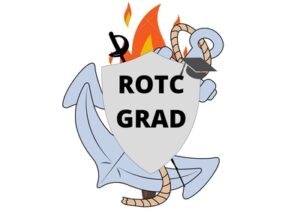
Introduction
If you’re in high school or are a parent that has a kid that close to graduating, then talking about the military and the various training pipelines sounds complicated. There’s a bunch of different programs for officers and enlisted, and choosing between the two is something you must make an informed decision on.
By the end of this article, you’ll have a full understanding of whether or not the ROTC option for any branch of the military is right for you or if you’re a parent, your kid. I’ll leave my contact info at the end of this article if you have other questions.
So is ROTC better than enlisting?
ROTC for any branch of the military is an outstanding option for commissioning as an officer because you receive top tier training to become a leader, more exposure to various military career specialties, and don’t have to pay any college tuition in exchange for a 4 year service contract upon graduation.
In the next sections, all further elaborate on the points I just highlighted.
You have more influence as an officer in the military
As an officer, you’ll be in trusted to make important decisions for the unit you’re a part of on a daily basis. This could mean getting rid of policies that don’t serve the unit anymore or implementing changes that will lead to higher quality training and development of enlisted personnel.
Enlisted personnel look to officers to make decisions every day and to set the example to junior service members who didn’t have a traditional college experience. As an officer, you’ll find it valuable to teach junior personnel about financial budgeting, health and fitness, and other topics you might have learned during your officer training.
Officers receive longer and higher quality training
If you put the effort and time into your ROTC unit, you’ll feel like you spent four years in college not only studying for a degree, but also learning about leadership and management. The ROTC instructors come from active duty stations, so they have a plethora of real world knowledge and experience they will give you.
Almost all branches have supplemental summer training exercises that range from a couple weeks to a month each summer, and these usually entail going to a military base to shadow a unit or get some exposure to what an active military lifestyle is like. Basic officer training comes once you graduate college, and this pipeline ranges from 6 to 9 months depending on your branch and job specialty. This is almost triple what enlisted personnel go through after Boot Camp.
When I was in ROTC, we had tons of leadership debates, seminars, and guest speakers that brought together tons of different perspectives about what it means to be a good officer. In addition to college studies, I also had a lot of free time to read leadership books and do my own case studies. Four years of reading 12 books a year specific to self improvement and leadership really helps supplement the personal growth.
You have more exposure to each job field before choosing
When I did Navy ROTC, we had at least three or four guest speakers a month come to talk to us about different job communities in the Navy and Marine Corps. At every ROTC unit, staff personnel will rotate in and out based on how much time they have left in service. This means you have new staff instructors coming in and out throughout your four years.
By design, these instructors come from different communities in the military that can talk extensively about the community they come from (combat engineer, surface warfare officers, submariners, pilots and even special operations).
The only guest speakers I didn’t have come talk to me were those in air traffic control and logistics.
When you go through your follow-on school after you graduate college, you will continue to receive more classes and exposure to each community and even have some hands-on experience with the things they do.
From my experience going through the Marine Officer basic training (TBS), we only had a couple dedicated hours to talk to people in each job specialty in the Marine Corps. I wouldn’t recommend relying on these dedicated hours to actually decide if a certain community is for you. Definitely do your own research and pursue Q and A’s in your free time.
Other Good Things to Know About ROTC vs Enlisting
Enlisted right after high school is an outstanding way to gain “real world experience” and jump into a lifestyle that you’ll never forget. You’ll learn more about yourself in the first few years of your enlistment than any time in your life before. You’ll also meet some of your best friends in the process.
Going through the ROTC process after high school had a similar effect, but I was always a little antsy learning about the military and reading books vs actually being in it. You can always go back to school as an officer after your first or second enlistment, which I would recommend if you also want to go to school
Conclusion
Thanks for reading! If you have any other questions or comments, feel free to reach out theyouculture@gmail.com and I’ll do my best to respond. Check back regularly for the next article.
